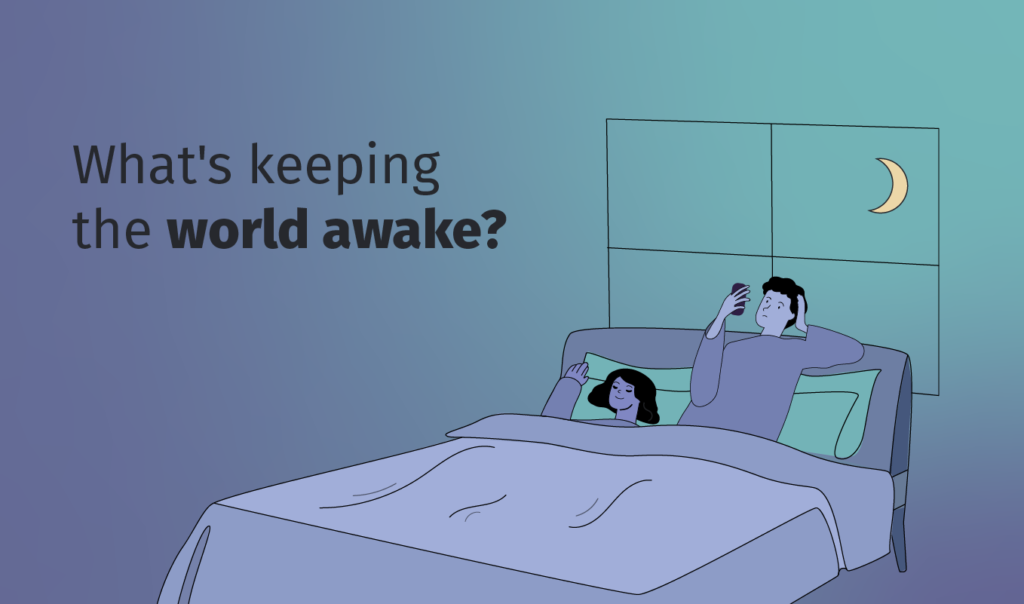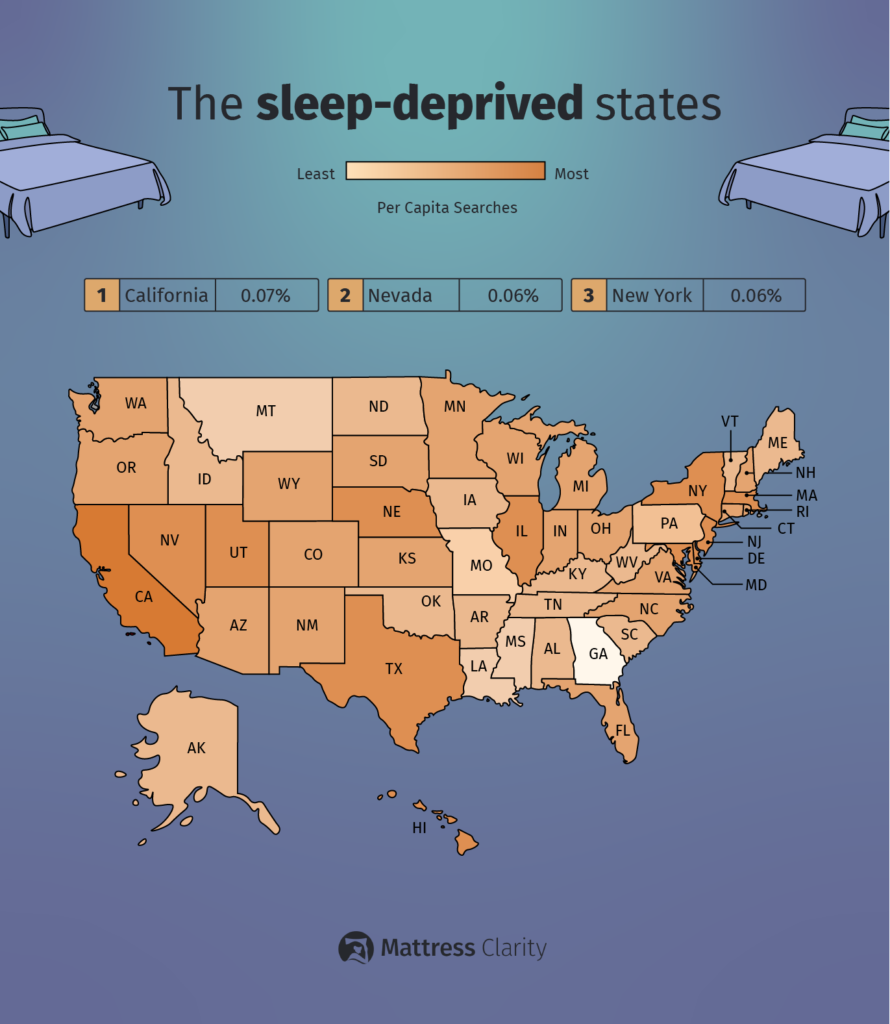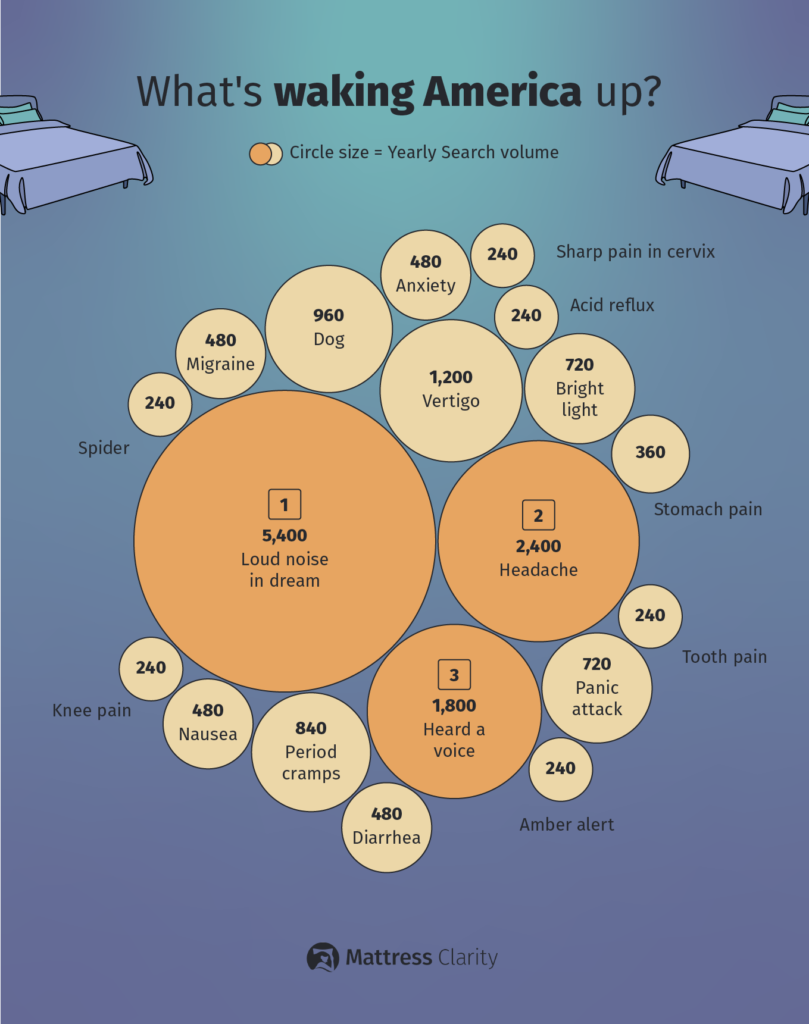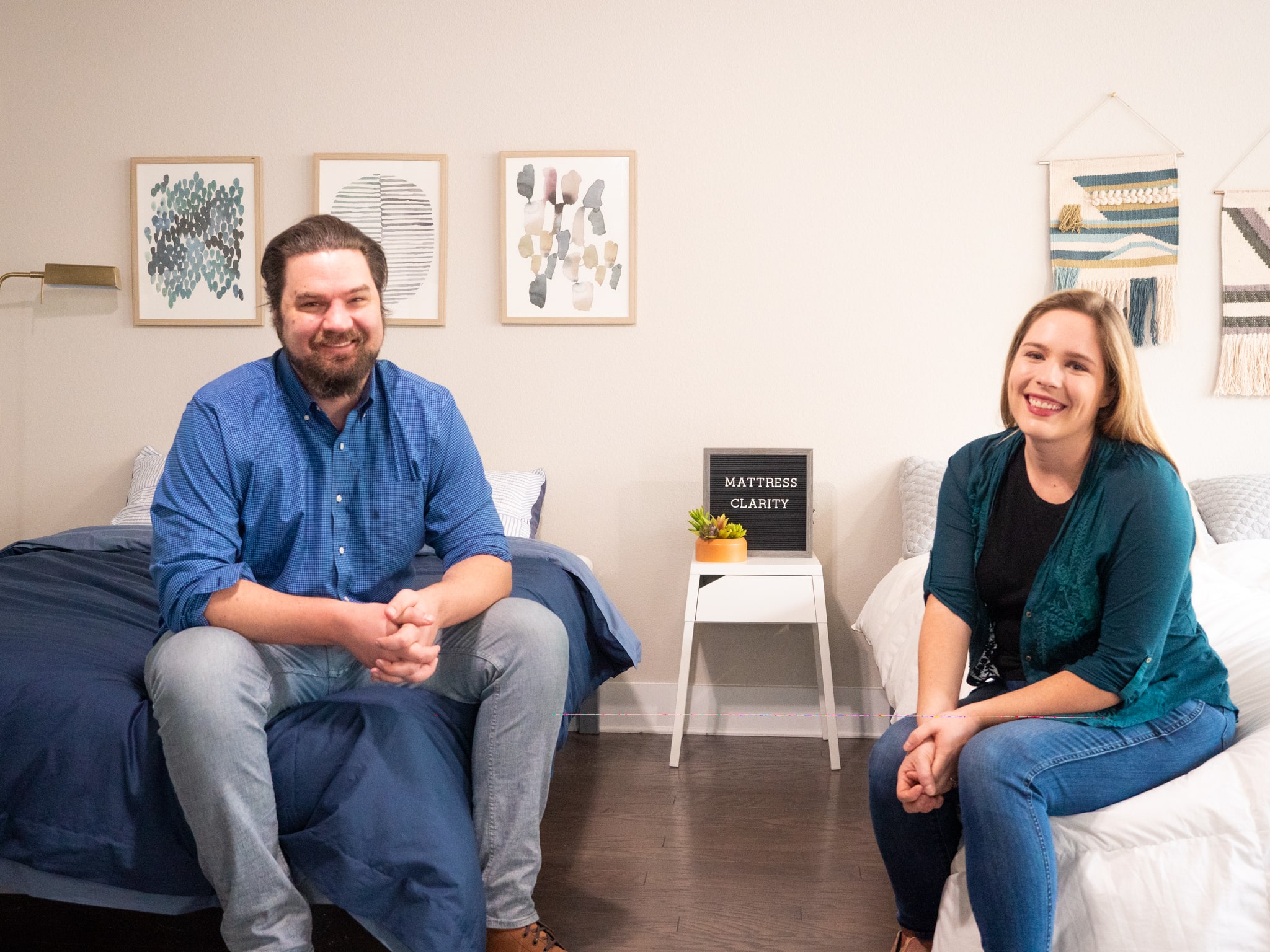
We’ve all been there before: you’re unable to sleep and end up tossing and turning all night. When it becomes a persistent problem, it’s known as insomnia. This phenomenon is a huge problem across the globe.. In fact, insomnia impacts roughly one in three people worldwide.
Sleep is a very important factor in our day-to-day lives, as it impacts mood, stress levels and impacts risk of health problems. To find out why more people aren’t getting enough of this vital process, we investigated what keeps people awake.
What Countries Can’t Sleep?
Interestingly the top three countries which are struggling to sleep are island nations with picturesque landscapes. Our data revealed that the Maldives struggles the most to fall asleep. The Maldives has the highest number of Google searches for the term “can’t sleep” when looking at population figures (196 searches per 10,000 people).
Taking second place is Malta with 173.57 searches per 10,000 people. When looking at the unique factor keeping Malta awake, the ‘full moon’ is found to be 6x more likely to keep those in Malta up at night.
The Bahamas take the third spot for sleep struggles with 141.21 searches per 10,000 people. Food is clearly on the mind of those in the Bahamas. Their searches revealed that feeling hungry or feeling too full was 3.8x more likely to keep Bahamas residents awake.
In comparison to the sleepless Maldives, the U.S. has a significantly lower number of people searching for how to sleep, with only 12 searches for every 10,000 people.
What’s Keeping Countries Awake?
The most common thing keeping the world awake is fatigue, being the leading cause in 44 out of 102 countries. This is surprising, as one might think those feeling fatigued would be able to drift off easier – but as anyone who has experienced sleepless nights will know, this isn’t always the case. Fatigue refers to feeling constant tiredness or weakness that doesn’t necessarily result in sleepiness. This can be a very frustrating situation for those feeling the impact of a bad sleep routine.
Lead reviewer at Mattress Clarity Marten Carlson comments:
“There are a number of reasons why you may feel tired but still can’t sleep. You could be struggling with a sleep condition such as insomnia. You may also struggle with mental conditions like anxiety or depression. It is also possible that your circadian rhythm is off due to irregular sleep/wake times.
Some of the other common themes keeping countries awake include partners’ snoring, stress, anxiety and illness. Dreams/nightmares have also been highlighted as a factor keeping people awake, it could help you to sleep better if you understand what your dreams mean.”
Why Can’t America Sleep?
So, what’s keeping America up then? Fatigue is a top cause, with over two thirds (67.3%) of searches mentioning the term.
Estimates show up to 2.5 million Americans suffer from Chronic Fatigue Syndrome. This syndrome is characterized by extreme tiredness regardless of how much sleep someone gets. This can cause issues with thinking and memory and also cause lightheadedness, dizziness and fainting.
There are many potential causes of fatigue. Lifestyle factors, physical health and mental health issues are common factors. There are some lifestyle changes that can help reduce fatigue such as drinking enough water, exercising regularly and cutting out or reducing the consumption of alcohol, tobacco, and other illicit drugs.
But what should you do if you feel tired, but can’t sleep? Our lead reviewer Marten Carlson has some expert tips:
“First off, make sure that your bedroom is a haven for sleep. Turn off your lights, lower the temperature on your thermostat, and use earplugs if you live in a noisy area. If you can’t fall asleep within 30 minutes, get up and do something relaxing. You could meditate or even read a book. Try not to use technology or screens as this can make it more difficult to fall asleep.”
The most unique cause keeping Americans up was found to be work/exam stress, with Americans 2.9x more likely to be kept awake by this than other countries. Working from home has been found to impact sleep in a negative way, keeping workers awake longer with work-related anxiety.
The Most Sleep-Deprived States

When looking at where in the U.S. sleepers struggle the most, California has been crowned the most sleep-deprived state, with over 25,000 searches related to having a bad night’s sleep every month, which amounts to .07% of the state’s population.
Rounding out the top three sleep-deprived states are Nevada and New York. We know that New York’s nickname is ‘the city that never sleeps’, so it’s not a shock to see them within the worst states for lack of sleep.
Georgia and Mississippi are the states with the best sleep, with only 0.01% and 0.03% of the states population searching how to sleep better, suggesting these states are already getting a healthy amount of sleep.
What Wakes Americans Up the Most?

Getting to sleep is tough, and when you finally do manage to get some shut-eye, the last thing you want is to be woken up unexpectedly in the middle of the night. Though an alarm clock in the morning may be a welcome wake-up, there are a number of things you don’t want interrupting your sleep.
The most commonly Googled thing waking Americans up was found to be loud noises within people’s dreams, which was searched an average of 5,400 times a year.
Marten Carlson explains that “This is what is known as ‘exploding head syndrome’, but it’s not as scary as it sounds. When this occurs, you may hear a loud noise accompanied by small muscle contractions and light flashes. There is no solid reason why people experience this, but research says it is not dangerous.”
Headaches are also a common offender when it comes to waking up Americans, with 2,400 searches a month. According to Marten, the best way to sleep with a headache is to make your bedroom as comfortable as possible for sleep. This means keeping the room cool, dark and quiet.
Illness in general is a common theme waking people up. Nausea (480 searches), diarrhea (480 searches) and stomach pain (360 searches) are among the top factors waking people up. If you find yourself waking up from illness regularly, we highly recommend speaking with your doctor, as it could be an underlying issue.
Your period can have a huge impact on your sleep cycle, so it’s unsurprising to see that period cramps are waking Americans up, with over 800 searches a year. Marten informs us that sleeping in the fetal position is a great way to ease period cramps and prevent leakage.
We’ve gone over the common reasons why people can’t sleep, but there are some things out of the norm that keep people up. One of these rare instances was related to dogs (960 searches). This is interesting, as research has shown that dogs have a more positive impact on sleep than other furry friends. When it comes to animals it’s not just pets waking people up. Even spiders are waking Americans up – with 240 searches!
How to Get a Better Night’s Sleep
With so many people struggling to sleep each night, we asked Marten for some top tips on what to do if you can’t sleep.
“My number one tip would be to kick technology out of your bedroom. This means avoiding using your phone, laptop, or TV while in bed. Also, cut down on using technology a few hours before bed.“
Top Tips for Daytime Habits that Promote Good Sleep
- First off, don’t drink caffeine later in the day as this can make it harder to fall asleep.
- Don’t drink alcohol too close to bed. You may fall asleep more quickly, but your quality of sleep won’t be as good.
- Watch what you eat. Spicy foods and foods that cause acid reflux can make it difficult to fall asleep.
What to Avoid if you Struggle to Get to Sleep
“You should avoid excess caffeine, alcohol and foods that give you heartburn if you struggle to get to sleep. Caffeine and alcohol can rob you of deep sleep, and acidic foods can keep you up at night.“
If you struggle with insomnia, you aren’t alone. With such a variety of things keeping the world awake, we hope that the top tips and tricks provided can help you get a better night’s sleep.
Methodology
What’s keeping the world awake?
Three key phrases, “can’t sleep”, “can’t go to sleep”, and “have trouble sleeping” were translated in each country’s official language using Google Translate. For each country, these translated phrases were then used to gather related frequently-searched terms and respective search volume.
Next, the suggested terms were translated back to English and categorized by cause of sleeplessness indicated in the keyword. The most searched cause of sleeplessness in each country was the category with the highest share of search volume. To determine which caused the most sleeplessness, the study looks at a comparison of the highest search volume in each country compared to the same cause globally
Searches per 10,000 inhabitants were estimated using population figures from the World Bank. Countries, where no cause-specific terms were returned by the API, were excluded from the dataset.
The sleep-deprived states
To uncover the states that are struggling to sleep the most, a list of keywords relating to sleep deprivation was collected. Using this list, the monthly search volume for each U.S. state was collected using Google Keyword Planner.
What’s waking America up?
Search volume related to the term ‘waking me up’ was used to reveal what the most common causes are for being woken up in America.
Data was gathered and is correct as of March 2025. If you’re interested in sharing this data or would like more information on the methodology of this data study, please reach out to Emily Lanham at Emily@mattressclarity.com.

